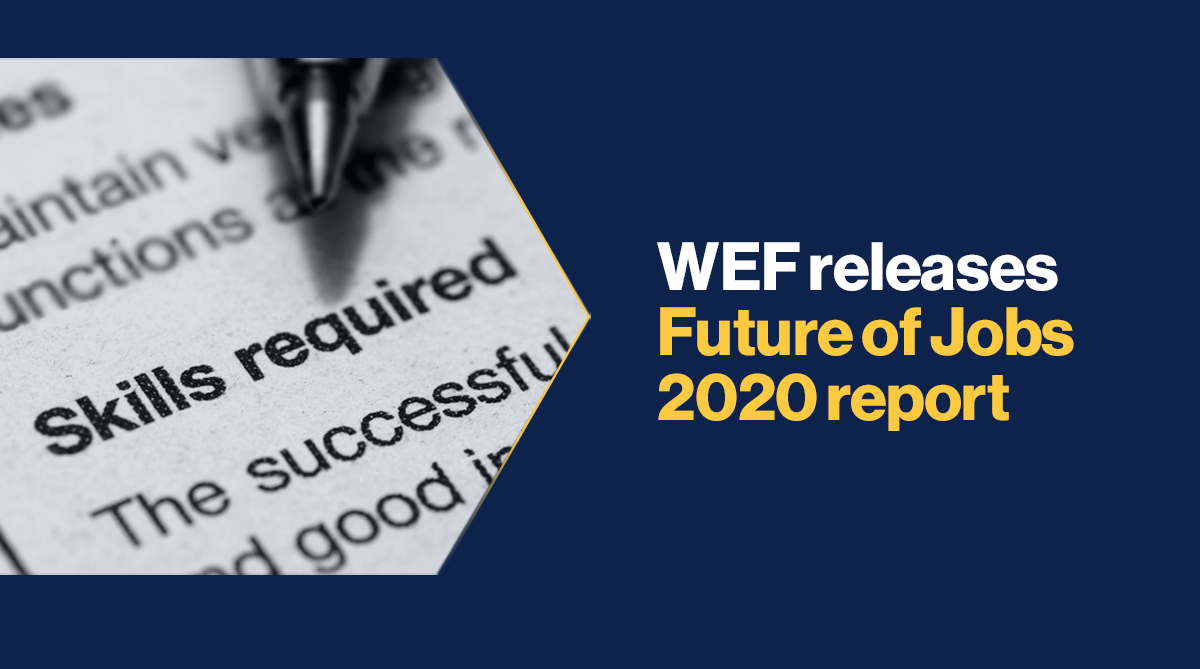WEF releases Future of Jobs report

The World Economic forum released the latest version of their Future of Jobs report last week and as with previous versions of the report it makes interesting reading. The report maps the jobs and skills of the future, tracking the pace of change. It aims to shed light on the pandemic-related disruptions in 2020, contextualized within a longer history of economic cycles and the expected outlook for technology adoption, jobs and skills in the next five years.
Previous versions of the report have tracked the changes occurring in workplaces brought on by the rise of automation, robotics and artificial intelligence (AI) and coined the phrase the 4th industrial revolution back in 2015.
The report has been particularly influential for the BCI and contributed to the decision taken in 2018 to introduce a competency framework that sought to widen the focus of business continuity and resilience professionals to include the ‘soft’ skills that were forecast by the report to be increasingly in demand from employers.
The 2020 report focusses on the changes that are forecast as a result of the Covid-19 pandemic with the key findings being;
• The pace of technology adoption is expected to remain unabated and may accelerate in some areas
• Automation, in tandem with the COVID-19 recession, is creating a ‘double-disruption’ scenario for workers
• Although the number of jobs destroyed will be surpassed by the number of ‘jobs of tomorrow’ created, in contrast to previous years, job creation is slowing while job destruction accelerates.
• Skills gaps continue to be high as in-demand skills across jobs change in the next five years.
• The future of work has already arrived for a large majority of the online white-collar workforce.
• Online learning and training is on the rise but looks different for those in employment and those who are unemployed.
• The window of opportunity to reskill and upskill workers has become shorter.
• Companies need to invest in better metrics of human and social capital through adoption of environmental, social and governance (ESG) metrics and matched with renewed measures of human capital accounting.
• The public sector needs to provide stronger support for reskilling and upskilling for at-risk or displaced workers.
These findings should have particular resonance for business continuity and resilience professionals as they contain a clear signal that they need to ensure that their own skills are upgraded to ensure they remain competitive in a newly restrained labour market. The BCI is well placed to support these professionals and the report should act as a call to action to;
• Assess their current skills and competence against the BCI Competency Framework
• Pro-actively plan their future training and development requirements
• Record this activity against their BCI Continuing Professional Development (CPD) log
• Upgrade their membership to demonstrate their professional achievements.
The full report can be downloaded here.


